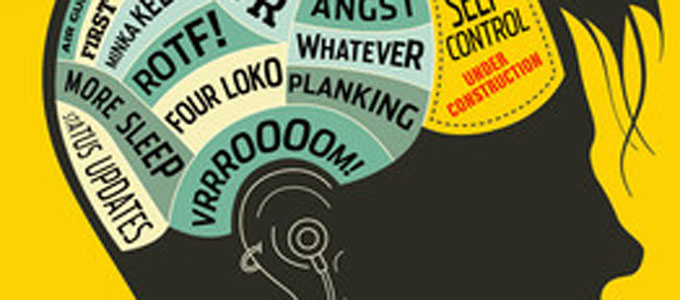The transition from high school to college is inherently destabilizing. For many people, college is the first time they spend a significant amount of time outside their childhood homes. Likewise, it is the first time that many teenagers experience their first taste of adulthood. This independence can be thrilling and profound, offering young adults full agency over themselves. Such independence can also be overwhelming, crippling even, because greater amounts of independence correspond with an increasing amount of personal responsibility. College offers less of a safety net than a childhood home does. Many universities have systems of support in place to guide and mentor students, but these often lack the familiarity and filial devotion of the place where said students grew up.
No one makes the leap from adolescent to adult without a certain amount of loneliness or uncertainty. That being said, it is often extremely hard to see that actuality reflected within the so-called hallowed halls of higher education. While many colleges have a commitment to the mental health and wellbeing of their students, colleges are intrinsically political, dealing in a world where social, cultural, and economic status is important. Universities often work hard to brand themselves for the public in order to encourage applications for matriculation. Colleges want to produce the best and the brightest possible students, and the student body keenly feels the pressure – especially in specialized or honors programs or within the top schools in the nation. That kind of unspoken institution pressure, combined with the increasing amount of academic rigor between high school and college, can have effects on the psyche of admitted students. Particularly because many college students believe they are less equipped to deal with their stress than many of their seemingly put-together classmates.
The phrase “fake it until you make it” helps explain why it is easy for college students to presume no one else is struggling in the same way they are. No one likes to admit they don’t have their life together, and this is remarkably true of students during their first year. It takes a certain amount of vulnerability to admit to someone else your true fears and stressors, which requires intimacy and trust that can be difficult to find in a new environment. This is further cultivated by the fact that many colleges also place emphasis on achievements and astonishing feats of ingenuity that their students create. These highlighted accomplishments are meant to be inspirational and aspirational, and for many they probably are. They can simultaneously foster inadequacy within students who don’t think they can measure up to their peers.
Perhaps unsurprisingly then, the emotional health of college students is becoming an issue more and more psychological experts are concerned about. Depression within college students has been found to be more far reaching than previously expected. A 2014 survey of 150,000 students nationally by UCLA’s Cooperative Institutional Research program found that 9.5 percent of students reported they “felt depressed” over the past year, a rise over the 6.1 percent the same program said reported feeling depressed in 2009. A similar 2011 survey by the American College Health Association found that 30 percent of college students had reported feeling, at some point over the past year “so depressed it was difficult to function.”
Doctor Anthony L Rostain is a psychiatrist and co-chairman of a task force on students’ emotional health at the University of Pennsylvania. He has stated this about the mental wellbeing of students in college: “It’s a public health issue…we’re expecting more of students: There’s a sense of having to compete in a global economy and they think they have to be on top of their game all the time. It’s no wonder they feel overwhelmed.” And while many colleges have a commitment to branding and selling their vision for higher education, there are increasing amounts of mental health services being offered at universities for those people suffering from mental health issues or depression. The National Institution of Mental Health even created a pamphlet on depression within college students that outlines steps towards mental wellbeing. It can be found here. Other articles can be found here:
- You’re Not Alone: What College Doesn’t Teach You About Depression
- The American Freshman: National Norms Fall 2014
- More College Freshman Report Having Felt Depressed







